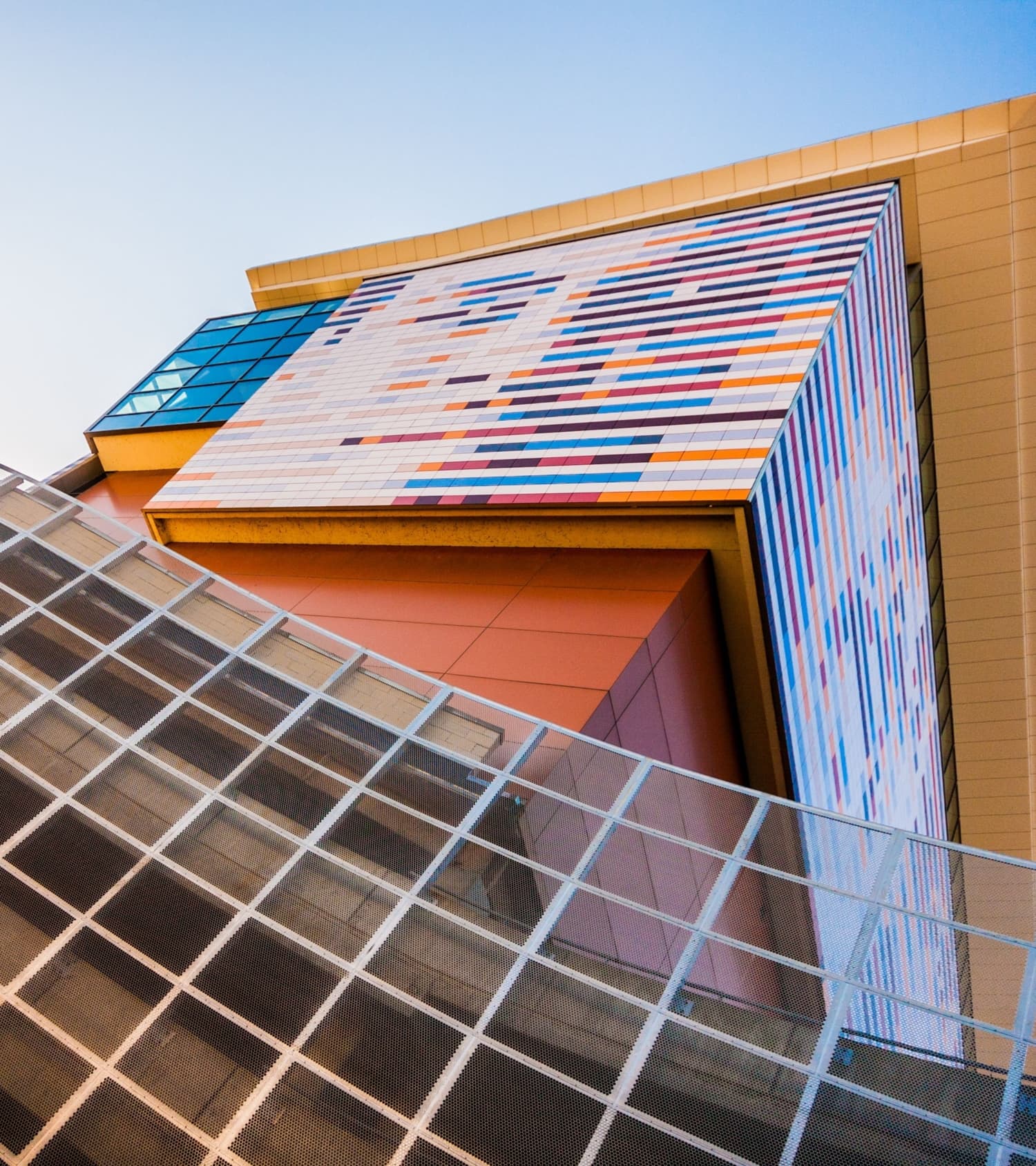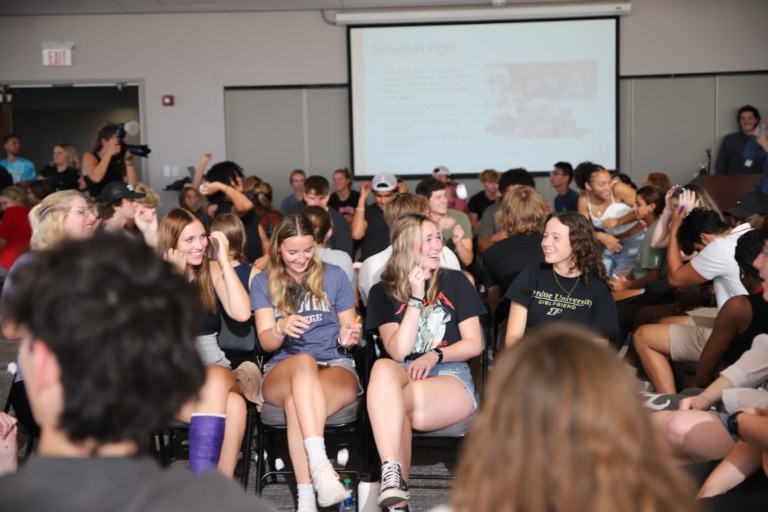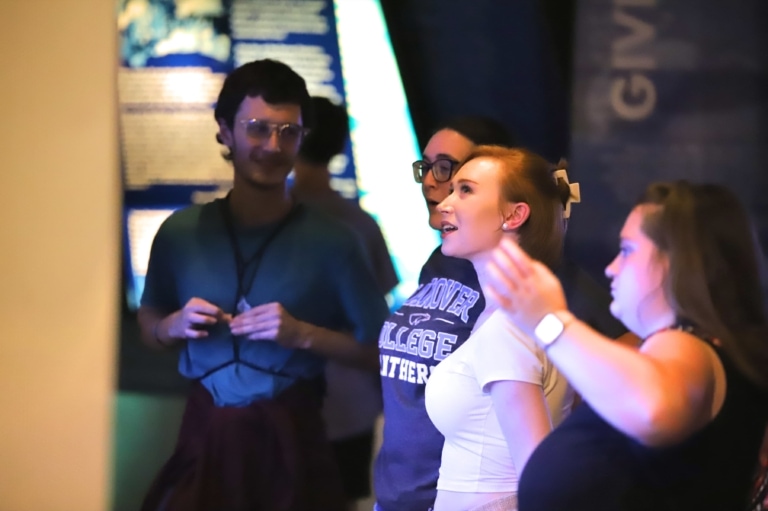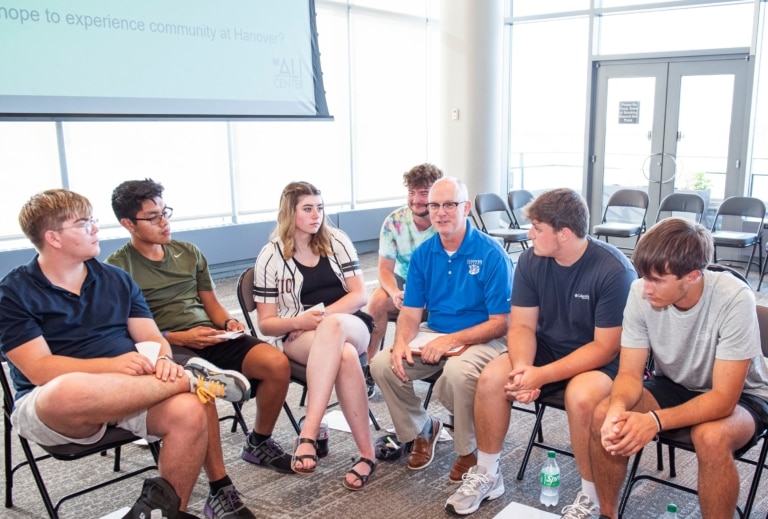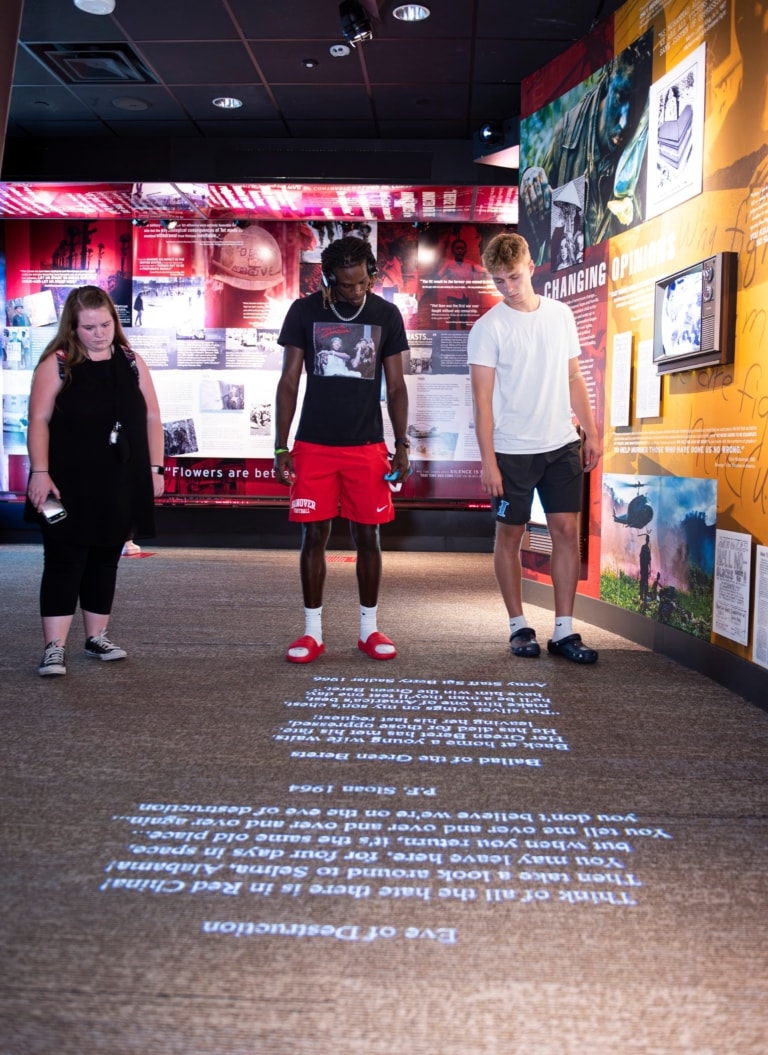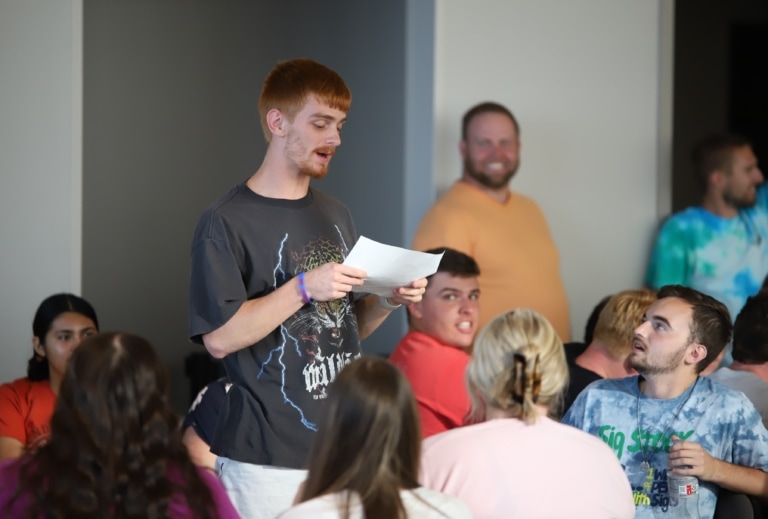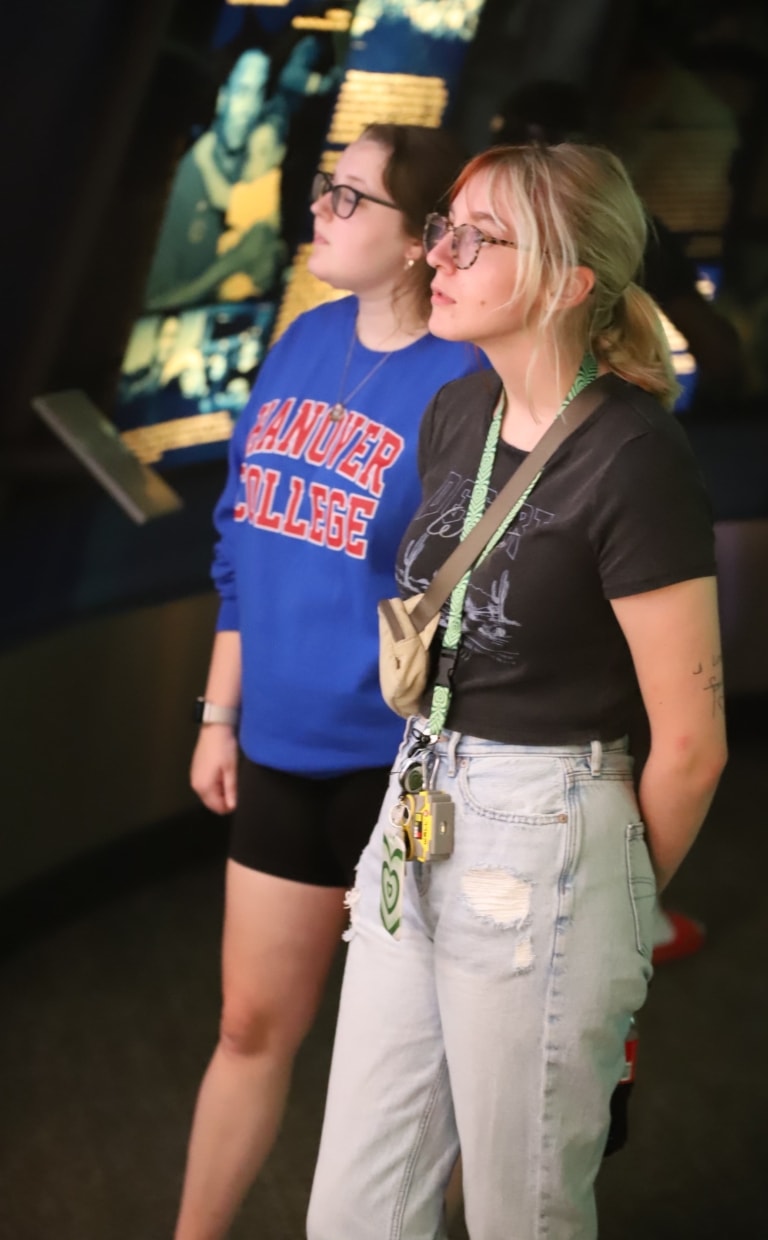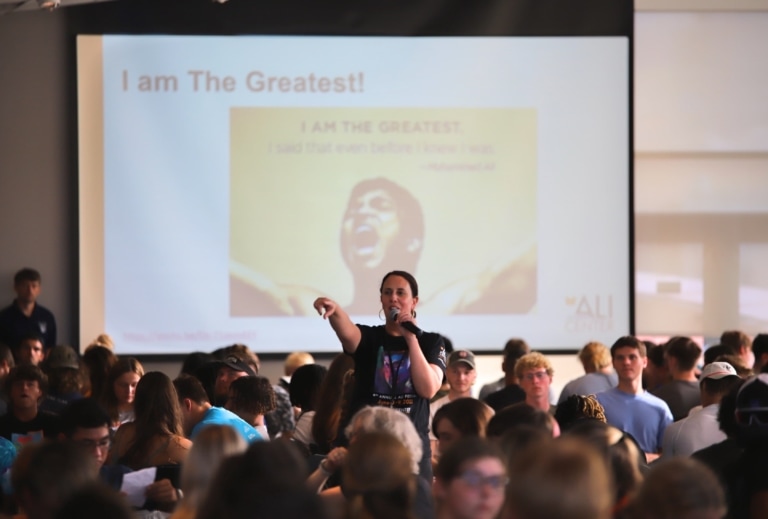University Programming
The Muhammad Ali Center offers a variety of programs for incoming and current college and university students.

First-Year Experience Program
The Muhammad Ali Center Experience for Colleges and Universities is designed to build community, respect, purpose, and resilience for incoming first-year students. Through a common experience and robust curriculum, students are introduced to Muhammad’s life and legacy, while engaging with the principles and practices of social justice. In addition, the program provides the opportunity for students to explore their own identities and core values. While exploring Muhammad’s life and legacy, students are asked to contemplate “How do your skills and passions align with your purpose as an engaged member of your college or university?”. Our program is uniquely set up to center a sense of community in a student’s approach to decision-making, major exploration, and campus involvement, with the long-term goals of increasing student retention and persistence to graduation.
Program Components include:
Common Experience: The program begins with an orientation experience at the Muhammad Ali Center. This experience focuses on employing Muhammad’s narrative to learn about social justice, the important role of community, and introduces students to his six core principles. Replacing or enhancing the “common reading” model, this portion of the program allows students to build shared language and understanding through a shared experience and community-building workshop.
Curriculum: The Muhammad Ali Center for Humanity and Justice has developed a curriculum centered on community-engaged scholarship that explores Muhammad’s legacy through the lens of his six core principles. This curriculum employs critical conscious pedagogy to situate learners as experts of their own experience and provides opportunities for learners to include those experiences throughout the learning process. The Center’s curriculum development team will assist in amending desired elements to fit the learning outcomes of the university’s larger first year experience program.
Reflection and Dialogue: The program provides students with opportunities for reflection and dialogue, such as regular discussion groups and reflective writing assignments. These activities can help students process their experiences and develop a deeper understanding of their own responsibility and place in the community.
Faculty & Staff Training: Prior to and during implementation, the Center’s curriculum team will provide training and support for faculty and staff associated with the project.
For more information on how to incorporate Muhammad’s legacy into your first year experience programs, email our Education team.
Summer Internship Program
The Muhammad Ali Center Internship Program is an exciting opportunity for individuals who are passionate about making a positive impact in the world. This program is designed to provide students and recent graduates with hands-on experience in a non-profit organization that is dedicated to promoting social justice, global citizenship, and cultural understanding.
During the program, interns will work closely with the Muhammad Ali Center team and gain valuable skills in areas such as event planning, marketing, research, education, and community outreach. They will also participate in regular professional development opportunities that will help them develop their leadership, communication, and critical thinking skills.
The Muhammad Ali Center Internship Program is open to individuals from all backgrounds and fields of study, but a strong interest in social justice and the cultural sector is preferred. The program offers paid positions and the duration can be tailored to meet the needs of each participant.
The Muhammad Ali Center Internship Program is an excellent opportunity for students to engage in experiential learning. This program is hosted using a cohort-based approach. Our Summer 2024 Internship Program is underway. Application deadlines and start dates for 2025 will be added as soon as they are available.
University Partnerships
The Association for Teaching Black History in Kentucky
The Muhammad Ali Center is a proud founding member of the Association for Teaching Black History in Kentucky. This collaborative effort is in partnership with founding member organizations: Berea College, Kentucky State University, and the Thomas D. Clark Foundation. The Association was organized in 2022 to recover the social, historical, and cultural contributions of Black Kentuckians and to make these materials readily available to teachers in the Commonwealth, thereby promoting quality K-12 instruction in history. The goal is to ensure an inclusive, respectful experience for all students that provides for their academic success.
The work of the Association is to equip educators to teach a nuanced view of history so that students can learn, grow, and face the issues of the day in their appropriate historical context. Further, educators require tools to help them navigate teaching these complex concepts in a way that ensures the full participation of all students at a developmentally appropriate level. The Association seeks to provide teachers at the primary, secondary, and higher education levels with academic lessons, presentations, and tools to present black Kentuckians’ full, diverse, and multi-faceted experience.
For more information, email our Education team.
Hanover College
Founded on a shared mission to build a more equitable, just, and inclusive world for all, Hanover College and the Muhammad Ali Center (MAC) have formed a partnership to foster educational excellence and social justice within our region. For three years, our organizations have collaborated on an innovative initiative to promote equitable educational attainment for BIPOC, low-income, and first-generation college students. In its pilot year, this initiative included strategic professional development, an intentional first-year student “Common Experience,” and a robust critically conscious curriculum integrated into Hanover’s FY101 Course, a mandatory seminar for all freshmen. Our evaluation of this comprehensive program has shown success and efficacy in building student resilience, cultivating an inclusive campus community, fostering respect for diversity, and promoting student sense of purpose.
University of Louisville Muhammad Ali Institute
The University of Louisville Muhammad Ali Institute (MAI) for Peace and Justice aims to advance the work, study, and practice of peacebuilding, social justice, and violence prevention through the development of innovative educational programs, training, service, and research. The MAI’s approach to peacebuilding, social justice, and violence prevention are guided by Ali’s Six Core Principles.
